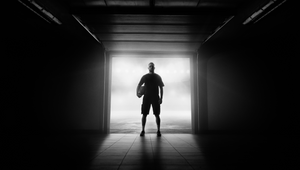
How Sweden’s Balanced Culture Guides Forsman & Bodenfors

At the start of 2024, James Jenkins stepped up to become the new CEO of Forsman & Bodenfors Sweden, having first joined the agency in September 2023 as head of business.
It’s only James’ third company in his career of over 20 years – and the second Swedish company for the British-born CEO. He started his journey at AKQA, where he spent 12 years helping build and grow the business, including time in London and San Francisco. In 2014 he joined B-Reel, where he ended up in the role of global chief operating officer. In 2023, James relocated from Brooklyn back to Sweden with an aim to to strengthen the collective offering at Forsman & Bodenfors, shaping the business in Sweden for the future, and working in close collaboration with global CEO Toby Southgate and the global management team.
As he gets settled in the new role, LBB’s Alex Reeves spoke to James about his experience in leadership and his vision for the agency moving forward.
LBB> How are you settling into the role? Have there been any surprises, good or bad?
James> This company has been around since 1986. And to be honest with you, they haven't really brought lots of external people into the company over those years. It's really been about growing people from the inside. So for them to hire me and then put me in charge is a huge step for the company. I think it just signifies that there's a new chapter that needs to be written, that they need to change as an organisation and in order to do that they wanted to bring someone in with a new perspective.
I wasn't that surprised entering this. I know that it's a big job. And usually these big jobs come on the back of requirement to change. So I went in [with] eyes wide open. The process to actually take on the role was extensive. I've only really had two jobs before this - B-Reel for about nine years and [before that] AKQA for about 12 years - I haven't jumped around. So I did a lot of homework getting into it. But it's a great company, a brilliant brand and great people. It's really about pointing it in a slightly different direction, but fundamentally, it's still got a lot going for it.
LBB> Let’s get an idea of the sort of leader that’s taking F&B forward. When did you first realise that you had to start being a leader?
James> The idea of leadership for me was never something that was made clear. It was just a natural step in how the company was evolving and my role within it. I joined AKQA during a fairly early stage of that company. And it was a madhouse. It was run by a guy [Ajaz Ahmed] that was 28 who was presenting to the board of BMW. He was leading, without having established leadership credentials, this whole amazing organisation. So I was just following in those footsteps really.
When I was about 26, I was put in charge of a fairly significant group of the agency and a chunk of the business. I had very little idea what I was doing, to be honest. At the time, I didn't really think about it being a leadership role, but in retrospect, I had a lot of responsibility for the age and the experience that I had. And frankly, I made a lot of mistakes. I was immature as a leader. But the whole ethos of that company was around giving people a lot of responsibility and seeing how they dealt with it. And I think that's something I take with me today. Whenever I'm filling roles and so on, I rarely think about the traditional experience that they might have and more about their personality, their ambition and their understanding of people. I think people can take on an awful lot of responsibility if they're geared in the right way. And I don't think that necessarily has to come from years and years of experience.
LBB> What was it about AKQA and B-Reel that shaped you as a leader?
James> I've been lucky to have good people around me all the time. I don't feel like I've ever been in a toxic managerial position where people have hated working with people. For me, it really comes down to different cultures.
At AKQA this was a company that had a very clear objective - to be the best and biggest. That ethos from the top down created an atmosphere in the team where nothing was finished, nothing was good enough, we had to keep on pushing. Then, of course, I was working in the UK and then moved to the San Francisco Bay Area. That was at a time of the launch of the iPhone, the launch of Facebook and Twitter - these amazing companies were just getting going. The energy there and the belief that anything was possible was infectious. But also incredibly tiring. It was [centred] around never stopping, and the balance in your life was totally wrong. It was geared towards work.
When I took a job at my last company, which was from a Swedish culture, it was much more around balance and much more about respecting the person and understanding that work is one part. One side of it was capitalism, and one side of it was socialism. And so for me, the biggest growth was understanding that you can strike a balance here. We want to push, be successful and have a level of quality in our work, but not to the extent where you take people for granted. You respect that work is just one part of their life. So I try to walk the line between those two things.
LBB> Can you talk more about that Swedish approach to business? You’re British but now heading up your second Swedish-run business. How does that national spirit shape companies like F&B?
James> It is a fundamental kind of way of life. It's born out of the system. And it's coming from a place where it is a very democratic way of life. People are thinking about the collective, not themselves. I think that mindset of being a part of a team and really respecting each other's role within that is how you make a lot of progress. Collectively, you're obviously stronger than one person. And in a more capitalist society people are out for themselves and how they progress individually. I think that hits a limit. Of course, not every company in Sweden is the same, but they all are built from the same platform. How do you leverage the quality that comes from that ability to think collectively? Point that at a bigger task.
Sweden is a country of 10 million people. It's tiny. And so how do we open the aperture and think about the value that you get from working in that type of way, but on a slightly broader scale? How do we think beyond just the boundaries of Sweden? That's really where I see the value. How do you take the good bits of working in that type of culture and export it to a broader set of opportunities?
LBB> There’s a lot of change going on right now, making 2024 a pretty tumultuous year to be leading a creative business in. How are you planning to respond to that context to keep F&B on top of things?
James> It is a pretty interesting time. There's a lot of pressure on our businesses from new competitors, whether it's technologies or internal client teams, different types of consultancies or even media platforms like the Googles and the Amazons and the Metas in the world. So there are a lot of challenges and opportunities there. Where I pull energy from is not really having a master plan of how you combat these different pressures one to one, it's more around how you have a strong set of values as a company and how those can see you through the ups and downs.
Forsman & Bodenfors has been around since the '80s. It's sustained ups and downs from the dot-com boom to the 2008 financial crisis. The reality is it's got a strong set of values that have kept it consistent throughout and given it a north star throughout all of that. That is really around respect for people, respect for creativity and how you work as a team. That is going to be the lifeblood for us moving forward.
And it's around how we behave differently today, with those values, to keep creating consistency, adapting like we have to become an organisation that is agile to react to different changes and pressures on our business. I don't want us to be something which is slow and stuck. I don't want to be a dinosaur. I want to have a mindset of curiosity and interest in what's coming and see all these different potential challenges to our business as opportunities, whether it's tech or different media types or different user behaviours. We need to be able to think about those in an optimistic way. How do we build around those types of opportunities versus trying to stop them? It's a mindset more than anything. We've got brilliant people in our company. The best people in Sweden have gravitated towards F&B over the years. We're not trying to be anything different. We're trying to point people in a direction where they feel hopeful and optimistic around the future.
LBB> As a CEO, I’m interested in the structures that F&B has built that allow the people in it to succeed. What are the priorities at the moment and where are you focused on building capabilities?
James> It's a very pertinent question and something that we are working through actively today. In years past, the pressures on clients' businesses were different and therefore the role of agencies was different. So for example, F&B in years past was very focused on how we create a brand idea and communicate it through a handful of different channels – TV, print, and so on. It was a very clear brief to us: how do we use the power of communication to support our clients needs?
In today's world, of course, there's way more pressure on a client's business. They have to adapt to this explosion of different channels, media and customer needs. And so the role of an agency has evolved, and that's proliferated across many different types of agencies. So for us, when we think about our role with clients, it's still very much about how we help them come up with an idea that galvanises their business, but the actual execution of that idea can take lots of different shapes. Whereas before it would be more advertising driven or communication driven, today that can be design, that can be ongoing content, that can be CRM, and how we continue that relationship with customers over time.
So we've organised ourselves around our clients' business with all these different capabilities that we have inside of our team. Over the years, F&B has acquired different types of agencies. We have got F&B Happy, which is a design consultancy, F&B Daily, which is a content studio, F&B Studios, which is a production company, and so on. It's less around thinking about those different disciplines as silos and more thinking around our clients' business in the centre, and then how we organise around the pressures that they have and how we create a system where we can bring the right voices into those conversations fluidly.
We still want to focus on creativity and ideas, but the actual tools that we have, we're thinking a little bit more broadly around that. How do we curate the type of team experience based upon where our clients have pressures?
LBB> F&B has always been structured slightly more horizontally than other agencies, as I understand it. How does that feed into the way you run the business?
James> A big part of our culture is around empowering teams. The legacy of the company was how we collectively solve problems so that we can compete with much larger organisations. And that placed a lot of emphasis on empowering teams to pull insights and find answers themselves, versus one person dictating the solution.
That's still very much part of the culture and we still empower people to figure out the right way of working with our clients. There is, of course, hierarchy in the company. Especially in today's world, we need to adapt to all of the different pressures that we see as a company and it's unrealistic to think of a smaller group of people having all the different answers. But the core of empowering people to find the solution and pull from the collective to get what they need is still very much part of the company culture and how we see success. It really is a crucial part of our way of working.
LBB> What have been useful resources that you've drawn on to help you lead F&B into the future?
James> A big part of becoming a leader for myself was around interest. Interest in people and culture, and going and seeing as much as possible. Resources for me have been connecting with people in all different types of places and situations. I really would encourage people to get out there, to go and meet people, to put themselves in situations which may be a little uncomfortable but will give them huge growth. Whatever that means for individuals. But understanding different people and having those people as resources in your growth, I think is the most crucial for me.
If I was thinking about specific things through my journey, I've accumulated all these different personalities and touchpoints, which I think have shaped who I am today and who, if I'm faced with a challenge, it feels natural to reach out to get that type of advice. So meet people, put yourself out there. Be obsessed with humans.
LBB> Moving forward, what is the main challenge for the agency?
James> I think the main challenge that we have as an agency is that the value of ideas and creativity is getting diluted. And the main message I have is: We really believe in the power of ideas. This requires people to come together and work fluidly, to have that flexibility and the space to develop ideas. Let's not forget about the humans are behind ideas. We need to celebrate them. It really comes down to a culture of creativity, and that's going to be the lifeblood for our industry.















